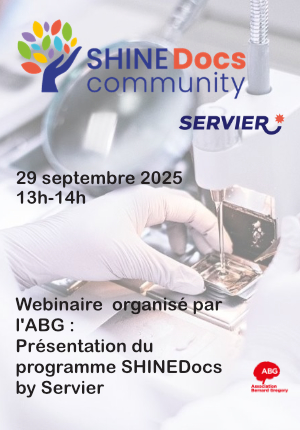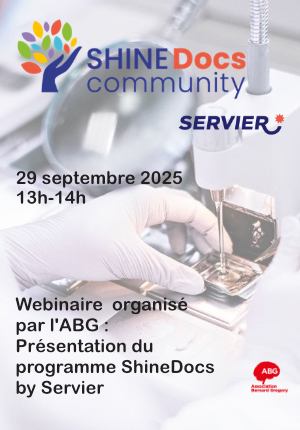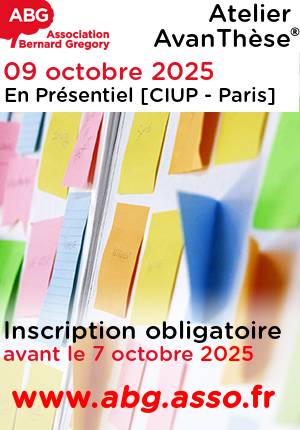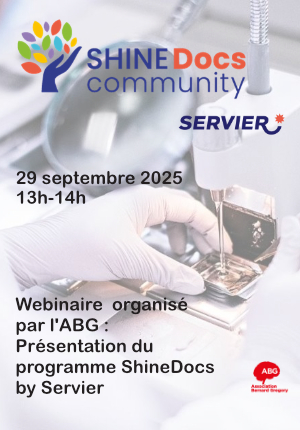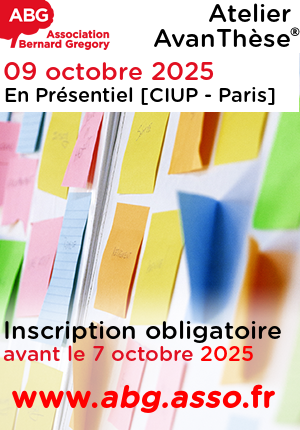Imagerie électrochimiluminescente pour la bioanalyse // Electrochemiluminescence imaging for bioanalysis
|
ABG-127782
ADUM-59278 |
Thesis topic | |
| 2025-01-07 |
Université de Bordeaux
TALENCE Cedex - France
Imagerie électrochimiluminescente pour la bioanalyse // Electrochemiluminescence imaging for bioanalysis
électrochimie, électrochimiluminescence
electrochemistry, electrochemiluminescence
electrochemistry, electrochemiluminescence
Topic description
L'électrochimiluminescence (ECL) est une technique analytique puissante où la lumière est produite par des réactions se produisant à la surface d'une électrode. Du fait de l'ensemble de ses performances analytiques, l'ECL est largement exploitée pour le diagnostic avec plus de 130 tests immunochimiques basés sur l'ECL actuellement commercialisés.
Le but de cette thèse est de poursuivre le développement de notre technologie qui porte sur un nouveau procédé d'imagerie ECL d'entités variées allant de cellules vivantes à des particules fonctionnalisées. Les cellules adhérentes sont cultivées sur la surface d'une électrode. Les membranes cellulaires ou certaines protéines sont ensuite spécifiquement
marquées en y attachant un complexe de ruthénium ou d'iridium présentant des propriétés ECL. L'application d'un potentiel suffisant déclenche l'émission lumineuse ECL qui est enregistrée avec un microscope équipé d'une caméra CCD.
Les objectifs seront, dans un premier temps, de tester différents complexes de ruthénium ou d'iridium (déjà synthétisés) émettant à des longueurs d'onde différentes et, dans un second temps, d'étudier les propriétés de transport à travers les membranes cellulaires. Enfin, le but sera d'étudier le comportement individuel de particules fonctionnalisées.
Lors de ce travail pluridisciplinaire, le doctorant aura l'opportunité de maîtriser différentes techniques d'électrochimie, de spectroscopie et de microscopie mais aussi de s'initier à la manipulation de cellules vivantes.
------------------------------------------------------------------------------------------------------------------------------------------------------------------------
------------------------------------------------------------------------------------------------------------------------------------------------------------------------
Electrochemiluminescence (ECL) is a powerful analytical technique in which light is generated by reactions taking place on the surface of an electrode. Because of its overall analytical performance, ECL is widely exploited for diagnostic purposes, with over 130 ECL-based immunochemical assays currently on the market.
The aim of this thesis is to further develop our technology, which involves a new ECL imaging process for a variety of entities ranging from living cells to functionalized particles. Adherent cells are grown on the surface of an electrode. Cell membranes or specific proteins are then specifically labelled by attaching a ruthenium or iridium complex with ECL properties. The application of a sufficient potential triggers ECL light emission, which is recorded using a microscope equipped with a CCD camera.
The objectives will be, firstly, to test different ruthenium or iridium complexes (already synthesized) emitting at different wavelengths and, secondly, to study the transport properties across cell membranes. Finally, the aim will be to study the individual behavior of functionalized particles.
During this multidisciplinary project, the PhD student will have the opportunity to master various electrochemical, spectroscopic and microscopic techniques, as well as to learn how to manipulate living cells.
------------------------------------------------------------------------------------------------------------------------------------------------------------------------
------------------------------------------------------------------------------------------------------------------------------------------------------------------------
Début de la thèse : 01/10/2025
WEB : https://nsysa.ism-bordeaux.cnrs.fr/
Le but de cette thèse est de poursuivre le développement de notre technologie qui porte sur un nouveau procédé d'imagerie ECL d'entités variées allant de cellules vivantes à des particules fonctionnalisées. Les cellules adhérentes sont cultivées sur la surface d'une électrode. Les membranes cellulaires ou certaines protéines sont ensuite spécifiquement
marquées en y attachant un complexe de ruthénium ou d'iridium présentant des propriétés ECL. L'application d'un potentiel suffisant déclenche l'émission lumineuse ECL qui est enregistrée avec un microscope équipé d'une caméra CCD.
Les objectifs seront, dans un premier temps, de tester différents complexes de ruthénium ou d'iridium (déjà synthétisés) émettant à des longueurs d'onde différentes et, dans un second temps, d'étudier les propriétés de transport à travers les membranes cellulaires. Enfin, le but sera d'étudier le comportement individuel de particules fonctionnalisées.
Lors de ce travail pluridisciplinaire, le doctorant aura l'opportunité de maîtriser différentes techniques d'électrochimie, de spectroscopie et de microscopie mais aussi de s'initier à la manipulation de cellules vivantes.
------------------------------------------------------------------------------------------------------------------------------------------------------------------------
------------------------------------------------------------------------------------------------------------------------------------------------------------------------
Electrochemiluminescence (ECL) is a powerful analytical technique in which light is generated by reactions taking place on the surface of an electrode. Because of its overall analytical performance, ECL is widely exploited for diagnostic purposes, with over 130 ECL-based immunochemical assays currently on the market.
The aim of this thesis is to further develop our technology, which involves a new ECL imaging process for a variety of entities ranging from living cells to functionalized particles. Adherent cells are grown on the surface of an electrode. Cell membranes or specific proteins are then specifically labelled by attaching a ruthenium or iridium complex with ECL properties. The application of a sufficient potential triggers ECL light emission, which is recorded using a microscope equipped with a CCD camera.
The objectives will be, firstly, to test different ruthenium or iridium complexes (already synthesized) emitting at different wavelengths and, secondly, to study the transport properties across cell membranes. Finally, the aim will be to study the individual behavior of functionalized particles.
During this multidisciplinary project, the PhD student will have the opportunity to master various electrochemical, spectroscopic and microscopic techniques, as well as to learn how to manipulate living cells.
------------------------------------------------------------------------------------------------------------------------------------------------------------------------
------------------------------------------------------------------------------------------------------------------------------------------------------------------------
Début de la thèse : 01/10/2025
WEB : https://nsysa.ism-bordeaux.cnrs.fr/
Funding category
Funding further details
Appel à Projets - China Scholarship Council (CSC)
Presentation of host institution and host laboratory
Université de Bordeaux
Institution awarding doctoral degree
Université de Bordeaux
Graduate school
40 Sciences Chimiques
Candidate's profile
Bonnes connaissances en physico-chimie et plus particulièrement en électrochimie
Good knowledge in physical-chemistry, more particularly in electrochemistry
Good knowledge in physical-chemistry, more particularly in electrochemistry
2025-09-30
Apply
Close
Vous avez déjà un compte ?
Nouvel utilisateur ?
More information about ABG?
Get ABG’s monthly newsletters including news, job offers, grants & fellowships and a selection of relevant events…
Discover our members
 Généthon
Généthon  PhDOOC
PhDOOC  Aérocentre, Pôle d'excellence régional
Aérocentre, Pôle d'excellence régional  CESI
CESI  MabDesign
MabDesign  Groupe AFNOR - Association française de normalisation
Groupe AFNOR - Association française de normalisation  ANRT
ANRT  Laboratoire National de Métrologie et d'Essais - LNE
Laboratoire National de Métrologie et d'Essais - LNE  Tecknowmetrix
Tecknowmetrix  Nokia Bell Labs France
Nokia Bell Labs France  CASDEN
CASDEN  ONERA - The French Aerospace Lab
ONERA - The French Aerospace Lab  SUEZ
SUEZ  MabDesign
MabDesign  ADEME
ADEME  Institut Sup'biotech de Paris
Institut Sup'biotech de Paris  TotalEnergies
TotalEnergies  Ifremer
Ifremer  ASNR - Autorité de sûreté nucléaire et de radioprotection - Siège
ASNR - Autorité de sûreté nucléaire et de radioprotection - Siège


